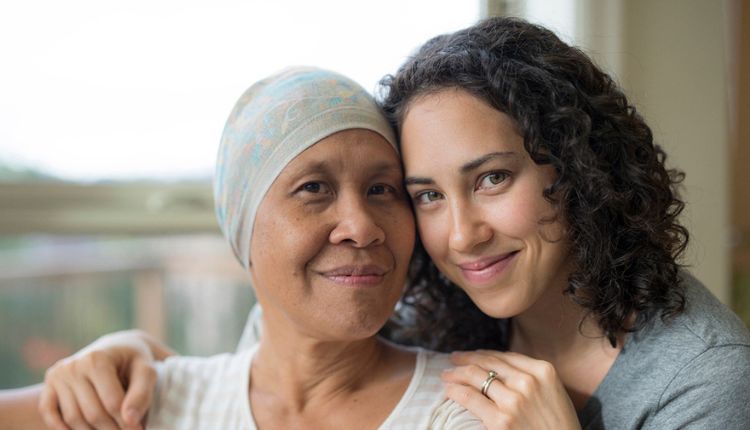During couples therapy, you and your partner can work to resolve conflict, improve communication skills, set healthy boundaries, increase trust, and more. Couples therapists may also double as individual therapists for each partner in the relationship to prevent perceived biases and ensure that both individuals are working on their own underlying issues that impact the relationship.
BRCA Couples
Receiving a diagnosis of a BRCA mutation can impact many aspects of a couple’s relationship. From intimacy/sexuality to family formation to risk-management decision-making, couples affected by a BRCA pathogenic variant often require the guidance of a counselor who understands how these unique circumstances may impact relationships. In some cases, a BRCA diagnosis can create feelings of insecurity regarding one’s body image and can make couples struggle with the decisions they must make for their health. A skilled therapist can help couples work through these issues and communicate more effectively. Ultimately, couples counseling can help save a marriage and teach people skills that they can continue to use in their relationships after the dust has settled.
It’s important for BRCA couples to remember that couples therapy requires an investment of time and effort by both partners. Couples who attend therapy sessions are likely to get more out of the process if they go into it with an open mind and a willingness to learn together. This doesn’t mean that all couples who attend couples therapy can keep their marriages together, but it is a sign that both parties are willing to work hard toward their shared goal of healing and understanding.
Newlyweds
Newlyweds have a unique opportunity to resolve problems that may arise early in marriage. This can include finances, sexual issues and other areas that can lead to marital instability if left unchecked. A therapist can help newlyweds develop and maintain healthy communication skills. They can also work to prevent small fights from escalating into bigger problems. This is especially important for couples who have varying personalities. For example, a therapist can help Rachel and James manage their differences in communication styles, so small fights don’t escalate into larger conflicts.
Another common reason newlyweds seek counseling is because they are struggling with their financial situation. A therapist can help them understand the impact of money on their relationship and how to deal with these challenges. They can also teach them to communicate more effectively with each other and set boundaries regarding finances and spending habits. They can also help them address emotional, sexual or physical abuse.
Divorced Or Separated Couples
A couples therapist can also help a couple navigate difficult marital issues, including infidelity and other significant betrayals. Often, when trust has been seriously eroded, negative patterns of interaction are established that can predict relationship dissatisfaction and even divorce (Gottman, 2002). Couples therapists provide a safe space to discuss these patterns, identify them and work to change them. A common reason that married couples seek therapy is to learn how to communicate better, resolve conflict and grow closer. Many couples find they struggle to nurture their relationship and focus on juggling family, work, friends and other commitments.
A couple therapist can help them explore ways to improve their communication, set boundaries, create healthy schedules and give each other space and time. It can also help couples choose to get a legal separation and remain civil while working on the issues in their marriages.
Children
The quality of a couple’s relationship significantly impacts children. For example, negative and hostile interaction between a mother and father can have lasting effects on their child’s behavioral outcomes. Parents in complex families sometimes need help figuring out their family dynamic. For example, they may need assistance navigating the division of time and duties between two households. They also need to decide where their children will be listed on medical documents and how to divide vacation and holiday times.
Discernment counseling is one of the most important uses of couples therapy. It helps couples reevaluate their relationship and determine whether they are incompatible or if divorce is the best option for them. Many couples who find this type of counseling useful do not end up divorced, but continue to attend longer-term couple therapy. Addiction recovery is a family disease and addressing these intertwined issues in couples therapy is essential for success. A therapist can help address the underlying problems that are contributing to addiction and provide tools for managing these issues in the future.
Conclusion
Couples therapists specialize in helping couples navigate the unique issues that may arise within intimate partnerships. They promote healthy communication, address conflict, improve trust and more. It is important to note that you don’t need to be in a failing marriage to seek therapy for your relationship. In fact, seeking help early on can prevent problems from spiraling out of control down the road.

